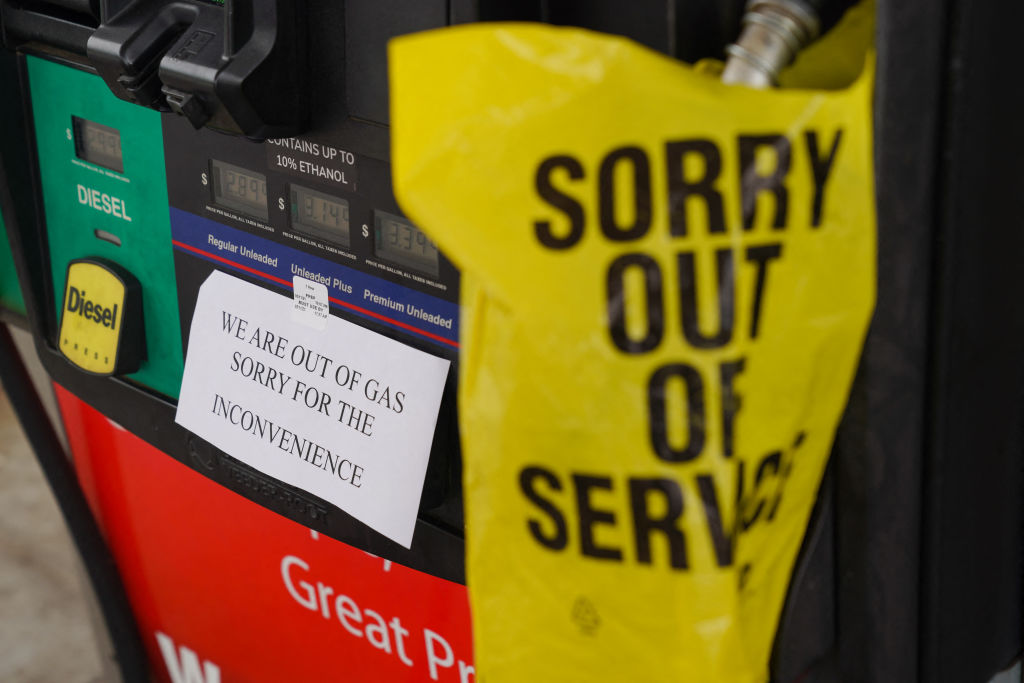The price of gasoline is not the only skyrocketing cost buffeting American roadways; the price of diesel has hit another all-time high. This hike will hit every American in the wallet, not just drivers.
Unfortunately, there is a problem with diesel even worse than its sky-high costs for truckers who deliver our goods: Not only is the cost of diesel a problem, but now analysts are warning that the supply is also drying up.
Diesel fuels our economy, giving truckers, delivery vans and construction crews the means to keep our supplies and necessities flowing. But the per gallon cost of diesel has been costing the businesses that bring us the goods we use daily, with prices surpassing the previous highs set back in 2008.
The average per gallon cost of diesel in the U.S. has now jumped past $5 per gallon according to AAA. That is a 61 percent increase over the $3.10 seen just last year.
This is a big nut to crack for companies attempting to budget their businesses and figure out what to charge customers for their services, especially when these hikes come like a sledgehammer, week after week after week.
It all tends to add to inflation as businesses seek to either cut down on what they offer or hike prices to cover the loss — or both. And this translates into higher prices for everything we do.
But according to a Bloomberg article by Javier Blas, diesel is an even bigger problem, one no one is talking about. Blas says, “skyrocketing diesel prices should be the main worry of central banks.”
“The dire diesel supply situation predates the Russian invasion of Ukraine,” Blas added. “While global oil demand hasn’t yet reached its pre-pandemic level, global diesel consumption surged to a fresh all-time high in the fourth quarter of 2021. The boom reflects the lopsided COVID economic recovery, with transportation demand spiking to ease supply-chain messes.”
The reason for this is that refineries cut back on production when COVID lockdowns forced demand for their product to fall. But as those lockdowns have become but a bad memory, refineries are now struggling “to match this revival in demand,” Blas warned.
“In the U.S., diesel stocks fell last week to their lowest seasonal level in 16 years,” Blas reported. And Europe is in even worse shape, especially with needed replacement supplies boycotted because it would come from Russia.
The coming crisis as diesel reserves empty out will also mean that countries will soon stop exporting diesel and the supplies to make it in order to shore up their domestic needs. And that means nations that look outside their own borders will suffer serious damage to their economies if they can’t transport goods inside their borders.
Blas also reported on Twitter that Trafigura CEO Jeremy Weir told participants at the FT commodities summit that diesel supplies are so low that he expects stock outages:
The full quote from Trafigura CEO Jeremy Weir at the FT commodities summit today is really scary (**my own emphasis**):
“The diesel market is extremely tight. It’s going to get tighter and **will probably lead into stock outs,**” he said, referring to when fuel stations run dry
— Javier Blas (@JavierBlas) March 22, 2022
Remember, all this predated Russia’s invasion of Ukraine, which is only making matters worse. This started because of the wild overreaction to the coronavirus, which resulted in massive lockdowns that put a serious strain on the world’s economic engines.
Of course, none of this should have been a problem for the U.S.A.
Under former President Donald Trump, the U.S. was trending towards complete energy independence. But since Biden took office, that salubrious situation has been reversed. And just when we needed energy independence the most, Biden has made sure we are at the mercies of foreign suppliers who have worries of their own.
Indeed, America should have been the world’s white knight, offering to help everyone keep fueling their struggling economies with our own oil exports. Instead, we are just another nation pleading hat in hand and with empty gas tanks, asking for someone, anyone, to save us.
This article appeared originally on The Western Journal.

























 Continue with Google
Continue with Google